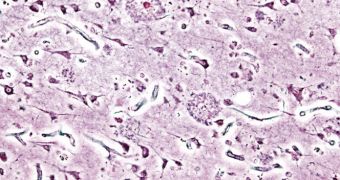After about 25 years of using the same criteria for diagnosing the form of dementia known as Alzheimer's Disease, healthcare experts are beginning to call out for a new set of guidelines.
Back in 1984, the US National Institute of Neurological Disorders and Stroke (NINDS) and the Alzheimer's Disease and Related Disorders Association published a set of criteria for experts to use in diagnosing the condition.
They have been in use ever since, but research into this terrible condition has come a long way since, and this should also be reflected in new diagnosis criteria, experts say.
“Much of the impetus for the proposed changes are 'recent disappointments in clinical trials' of drugs used to treat the disease once dementia has set it,” says neurologist Dr Reisa Sperling.
She was the chair of a workgroup convened by the NINDS to update the decade-old criteria. The expert says that most experts now agree on the need to start treating the dementia before it sets in.
But doing so is impossible without accurate diagnostics, and this is where the new effort comes in. Diagnosis methods need to be brought into the 21st Century, My Health News Daily reports.
Recently-published studies have shown that the development of the disease can be predicted up to 20 years in advance, and that people who are at risk of developing it may by warned of this decades before dementia strikes.
An important avenues for study today, as far as Alzheimer's goes, is finding a method of separating symptoms that indicate this condition from signs of other forms of dementia.
This could in turn lead to the creation of methods that would allow experts to detect additional stages of mild cognitive impairment (MCI), or the earliest stages of disease.
The three groups that were convened by the NINDS to establish the new criteria also want to keep in mind the recent progress that has been made in understanding the disorder on a genetic front.
Experts will also turn their attention on biomarkers, which are chemicals that are produced in specific concentrations only in the body of people with the condition.
“We felt was important to move Alzheimer's disease in this direction, but right now we are proposing these criteria for research. We still have a lot of work to do,” Sperling says.
“There are likely many other contributing factors that we do not yet understand. We hope that eventually these new criteria will lead to earlier diagnosis and treatment, perhaps even before symptoms are apparent, but that could be as much as ten years away,” she concludes.

 14 DAY TRIAL //
14 DAY TRIAL //